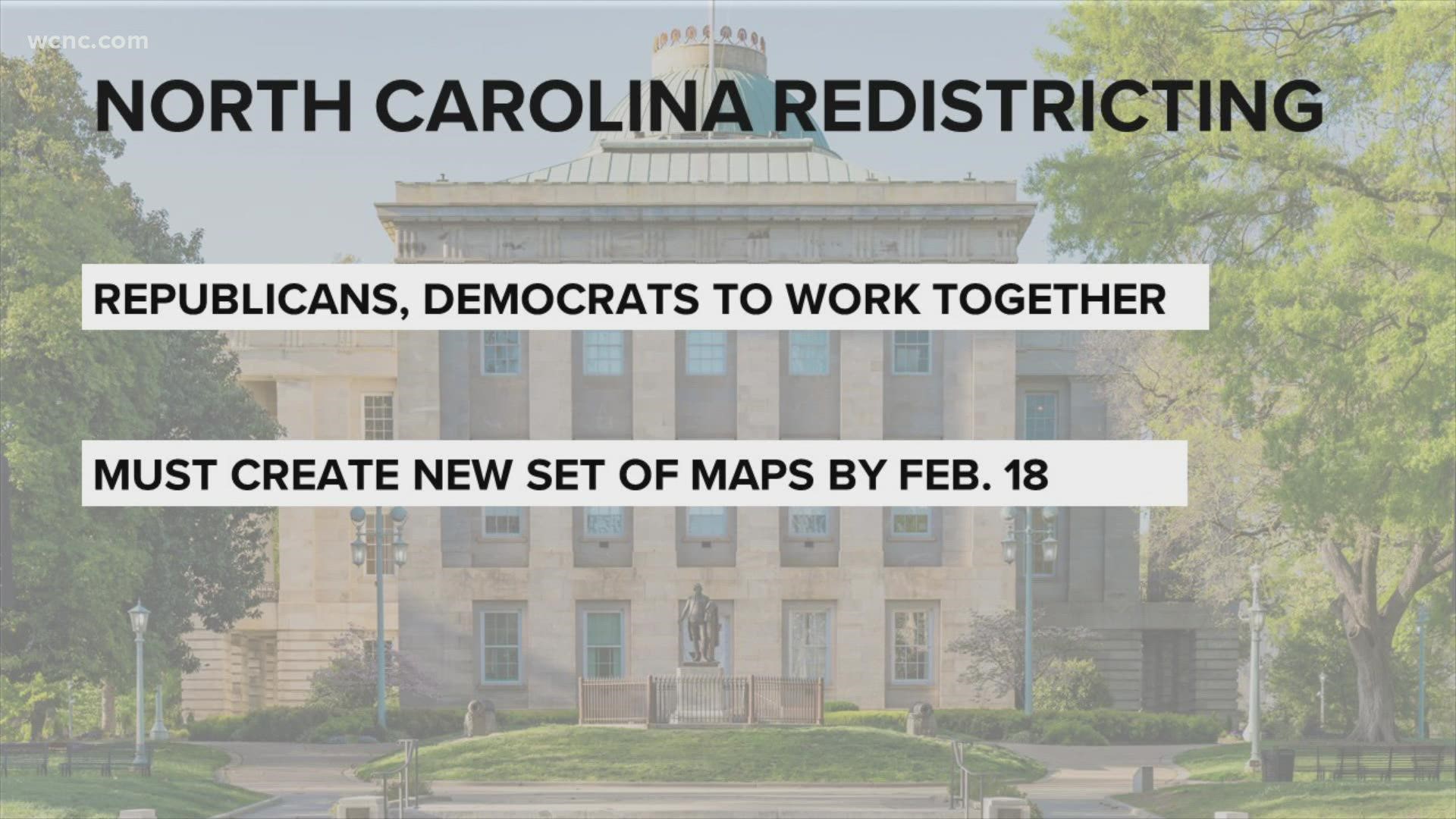RALEIGH, N.C. — Editor's note: the above video is from a previous story on Feb. 10.
North Carolina state lawmakers will have a busy few days ahead of them as they scramble to pass a new set of redistricting maps to comply with a state Supreme Court ruling.
Last week, Republican and Democratic leaders assured reporters they would work together to draw up new legislative and congressional maps. Voting rights advocate groups had accused some Republican lawmakers of going behind closed doors to draw up the first set of maps.
Lawmakers are back at the drawing table after a divided court struck down maps drawn and passed by the Republican-majority legislature in 2021.
Rep. Destin Hall (R-Lenoir) shared the newest version of the map House lawmakers will debate on Wednesday.
Justices called the first maps unconstitutional and a violation of North Carolina residents' rights.
The maps would have given Republicans in North Carolina an edge in future elections.
The state's highest court directed lawmakers to go back to the statehouse and create a new set of maps and submit them to a trial court by Feb. 18.
Justices also directed lawmakers to provide an explanation of how they drew the districts fairly with the newly-submitted maps.
On Wednesday, both House and Senate redistricting committees are set to meet to discuss the redistricting maps.
House Speaker Tim Moore said Tuesday he's confident that new lines will comply with metrics inside that opinion designed to measure partisan fairness.
Political analysts have been watching the redistricting drama out of North Carolina closely. Professor Michael Bitzer with Catawba College pointed out the state Supreme Court's involvement in this case.
"So we have a very clearly divided, very partisan Supreme Court that is issued this very substantial and important decision that will guide the rest of how North Carolina politics plays out this year, and potentially for years to come," said Bitzer.
The redistricting saga has been playing out in North Carolina courts for months. It's had an impact on every political candidate, as the state Supreme Court pushed back the primary election from March to May.
The Associated Press contributed to this report.

